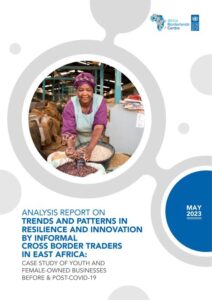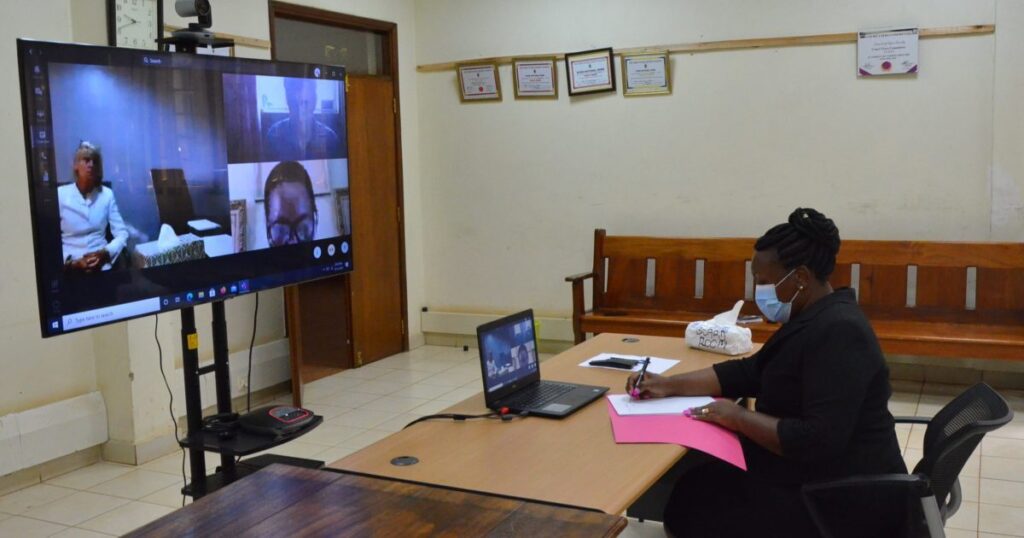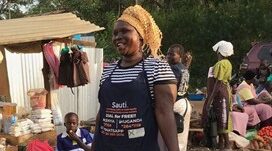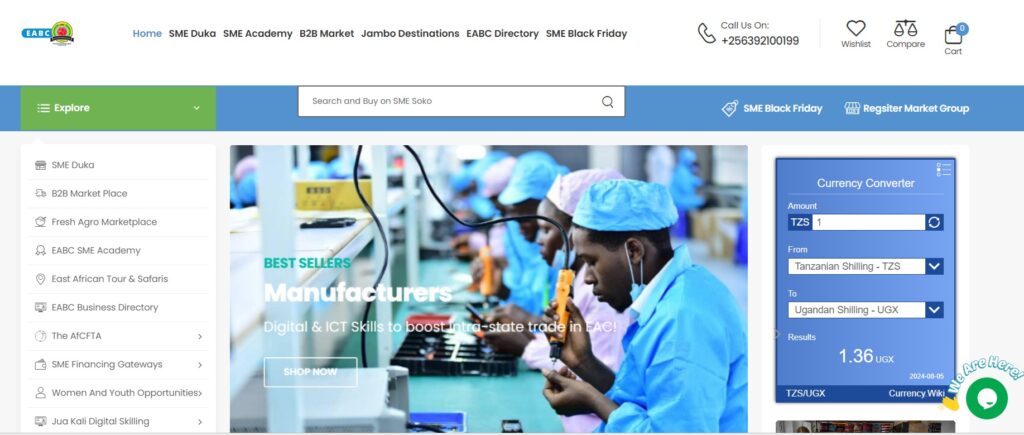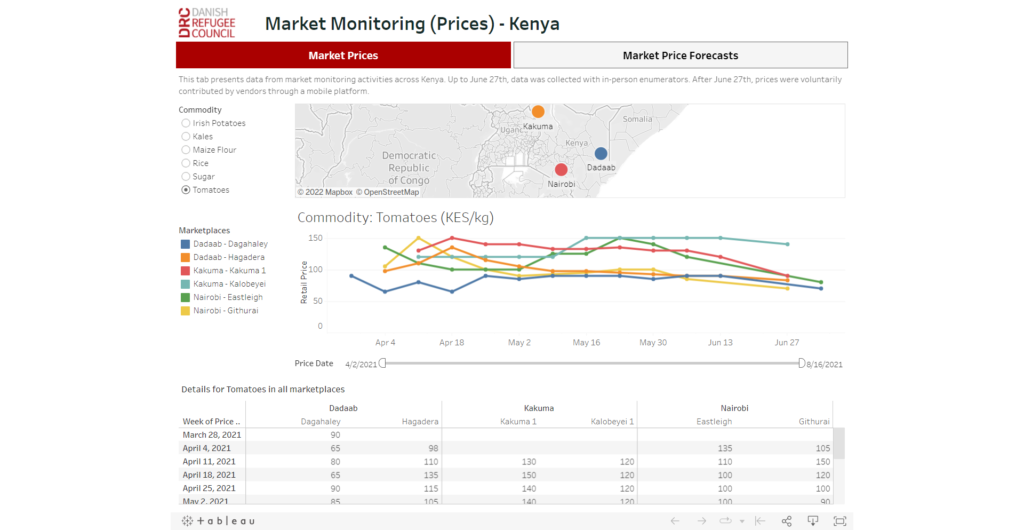Trends And Patterns in Resilience and Innovation by Informal Cross Border Traders in East Africa: Case Study of Youth and Female-Owned Businesses Before & Post-Covid-19Sauti Trade Insights
Sauti East Africa, in collaboration with the United Nations Development Programme, has produced a report comparing business activities of youth and female-owned businesses before & after-COVID-19.
This report presents a comprehensive understanding of the trends and patterns in resilience and innovation by informal cross-border trade (ICBT) in East Africa. By synthesizing data collected from more than 20,000 ICBTs throughout the region before, during, and after the COVID-19 pandemic, this report presents a case study of the innovations that helped ICBTs learn to ‘live with COVID’ and those adaptations that are driving recovery.
Research Context
While the significance of informal cross-border traders to regional trade is qualitatively well-researched, quantitatively estimating the continental scale of ICBT is especially challenging for researchers and policymakers. Official statistics of formal trade through official channels (e.g. customs) are widely available, however, the data does not typically capture trade via informal and non-gazetted routes, outside the operating hours of data collectors, or trade in underdeclared goods. Instead, researchers must often rely on indicative estimates and infrequent statistical surveys in small-scale (e.g. single border crossing) geographies.
The informal nature of cross-border trade means makes it difficult to track and collect data accurately even under normal circumstances. COVID-19 exacerbated these data collection challenges. Many data collection methodologies, such as in-person surveys, became impractical due to health risks. Shifts in trade patterns, in trade behaviours, and regulatory changes meant that many data collection methodologies were not equipped monitor the vulnerabilities and resilience of the informal sector at the border. Here, Sauti’s continual monitoring of trade and market data offered an exciting opportunity to consistently and reliably track ICBT dynamics before and after the pandemic.
Report Findings
UNDP Africa Borderlands Centre seeks to develop a comprehensive understanding of the current and future trends and patterns in resilience and innovation by informal cross-border trade in East Africa. In order to accurately inform the UNDP’s mission, Sauti led this report through the three parts of the analytical framework highlighted in the figure below:

We used three perspectives:
- Digitalization: The level of digital literacy, smartphone adoption, access to the internet, and integration of digital resources (e.g. communication and e-commerce platforms) to address business vulnerabilities.
- Access to Finance: The use of formal and informal banking institutions, creditworthiness, entrepreneurial capacity, risk perception and mitigation and resilience strategies.
- Safety: The level of confidence in crossing the border, incidents of corruption/harassment, official and unofficial border routes, and the future of cross-border mobility.
A look into the report’s key findings:
- A significant number of ICBTs coped with the pandemic by modifying their trade destinations to trade within domestic markets, rather than in cross-border markets. During the pre-pandemic period (between 2018-01 and 2020-02), traders indicated that 66.4% of their sourcing and selling was conducted in cross-border marketplaces. During the height of movement restrictions (2020-03 to 2020-09) in Kenya, this figure had dropped to 39.2% for the average ICBT.
- 55.4% of respondents in this report’s ICBT surveys indicated that they were members of a cross-border trade association, of which, 33.7% indicated that their association was a source of support to clear goods when the border was closed.
- 34.9% of survey respondents stated that they sought more loan financing than they typically would during the COVID-19 pandemic. Mobile lenders were one of the most frequently sought after sources of emergency loans during the pandemic, with 29.5% of borrowers having most recently taken a mobile loan.
- 84.9% of survey respondents stated that they made/received most payments through mobile money during COVID-19. 36.4% indicated that they used their phones to buy and sell their products online.
- Based on 2,895 border crossing reports collected by Sauti East Africa, where ICBTs were asked whether they had a good or bad experience crossing the border, the data reveals that the average probability an ICBT experiencing a negative border crossing experience, holding other variables constant, increased from a pre-pandemic level of 10.4% to 57.5%. See below.
Average percent likelihood an informal cross-border trader experiences a negative border crossing experience
- In an analysis of wholesale prices across Kenya, Uganda, Rwanda, and Tanzania, and controlling for inflation, time-related trends, product type, marketplace, and seasonality, ICBT product prices have increased by an average of 4.7% compared to the two years before the pandemic.
Policy
The recommendations within this report are meant to highlight what has been learned from the COVID-19 pandemic to improve resilience in the future.
Digitalization
- Consider ICBTs level of technology and promote “accessible-first” ICT-led trade facilitation
- Digital-based solutions are a promising avenue to target women and youth-led ICBTs
- Promote cross-border fintech, paperless trading, and mobile money integration and interoperability
- Promote data integration between ICBT-relevant data services
- Promote e-commerce channels and platforms already in use by ICBTs
Access to Finance
- Support scale-up financing programs and the development of digital fintech products specific to ICBT businesses
- Work with mobile lenders to support innovative financing for ICBTsProvide formalization and technical training support to microfinance groups supporting ICBTs
Safety
- Promote trust and dialogue between cross-border trade officials and ICBTs
- Support programs that address the accessibility and effectiveness of ICBT-related justice institutions
- Capitalize on AfCFTA policy implementation to promote ICBT dialogue and official communication
Overall, we have concluded that while the pandemic presented an extreme threat to the ICBTs involved in East Africa’s intra-regional trade, in the post-pandemic period, INGOs such as UNDP have several opportunities to catalyze the rate of recovery and promote resilience among ICBTs in East Africa.
The data presented in this report illustrates the initial, and lasting, damage brought on by the pandemic and its effects on the informal trade sector. This report has also presented the ways ICBTs have modified their businesses to adapt, and the avenues (and lack thereof) for recovery. Promoting these pathways for recovery and resilience, and addressing the challenges made worse by COVID-19, will be critical for East Africa’s development sector to have a meaningful and inclusive economic impact for ICBTs in the region.
